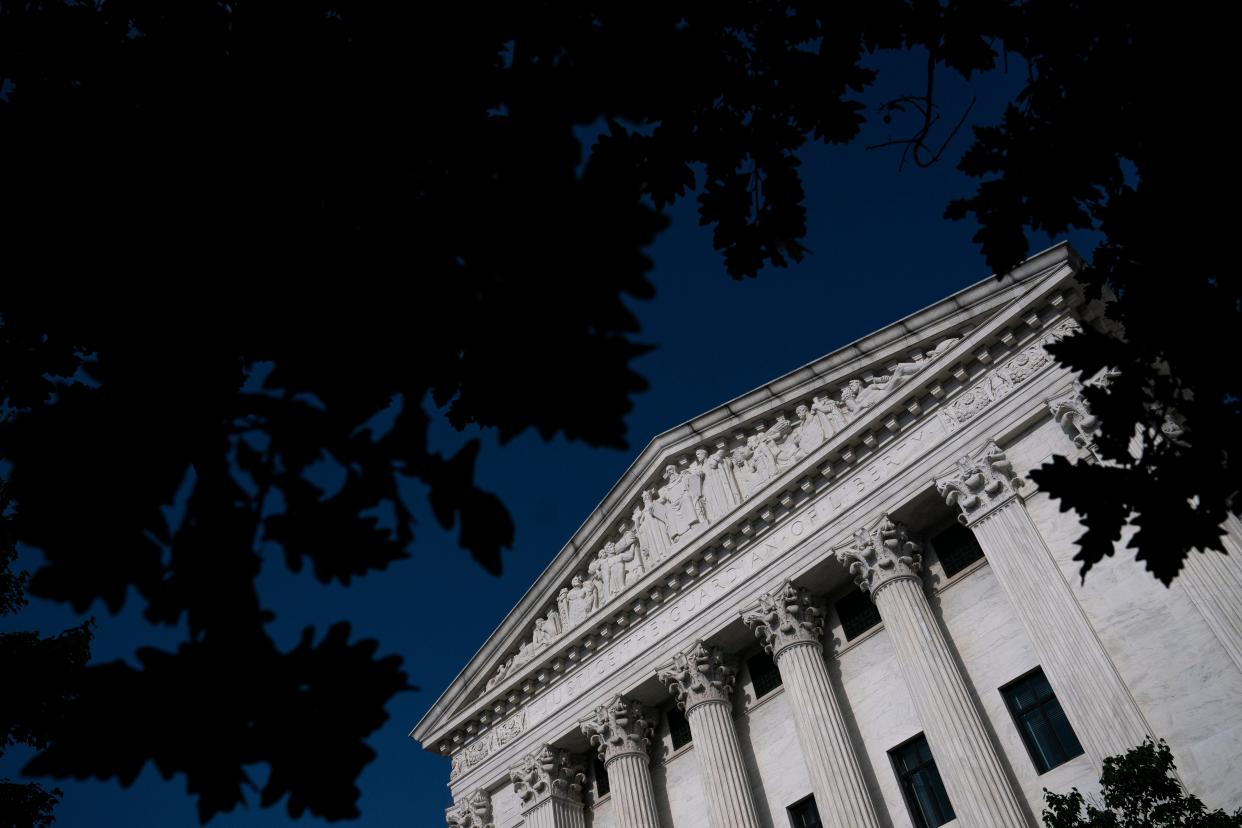Explainer | Why judges get lifetime jobs

- Oops!Something went wrong.Please try again later.
- Oops!Something went wrong.Please try again later.
- Oops!Something went wrong.Please try again later.
Q. Why do judges get lifetime jobs?
A. Article III, Section I of the Constitution reads, “The judges, both of the supreme and inferior courts, shall hold their offices during good behaviour, and shall, at stated times, receive for their services, a compensation, which shall not be diminished during their continuance in office.” The key term here is “good behavior” which has come to mean that federal judges get to serve until and unless they are removed from office through the impeachment process, which is rare.
Judges are expected to follow the law which can result in unpopular decisions. The purpose of giving federal judges such extraordinary job security is to remove them from political pressures. This is intended to help ensure that the decisions they make are guided by law and judgment rather than trying to placate political interests to save their job. A judge or justice must be seen as fair and independent.

A lifetime appointment was not as significant a commitment at the founding of the nation. In the 18th Century, life expectancy was about 50 years. Many Supreme Court Justices served relatively short terms, even with the lifetime appointment. The first Chief Justice, John Jay, served just under six years. In the last 30 years, only David Souter has retired with less than 20 years on the High Court. Retiring Supreme Court Justice William Breyer will have served about 28 years. Current Justice Clarence Thomas has served over 30 years. However, both will likely be surpassed by other justices, as the trend has been to appoint younger individuals to extend the influence of a nomination.
Learn more about America: More of Kevin Wagner's The Civics Project columns
There is some question to whether lifetime tenure removes the politics or adds to it. Supreme Court Justices can serve decades, so every modern vacancy has become a highly partisan contest, since winning or losing the nomination battle can have a significant effect on the direction of the nation. Indeed, the very length of the term can lead to questions. Before joining the Supreme Court, Chief Justice John Roberts observed in a memo, “A judge insulated from the normal currents of life for 25 or 30 years was a rarity...but is becoming commonplace today.” Other modern democratic nations avoid this particular quandary by having strict term limits or mandatory retirement ages.
It is important to note that constitutional lifetime tenure applies to “Article III” federal judges and not others, like state court judges. Terms for state judges are set by state constitutions or state law. While some state judges do have similar “good behavior” tenures, most have more limited terms. Depending on the state, judges can serve a specific number of years, and then they either have to be reelected, or reappointed. Some states, like Florida, require appellate judges to face retention elections, where voters are asked to keep or not keep the judge. Interestingly, almost all are retained.
The challenge for reforming or changing the “good behavior” provision of the Constitution is to balance the independence of the judiciary with the need for at least some democratic accountability.
Kevin Wagner is a noted constitutional scholar and political science professor at Florida Atlantic University. The answers provided do not necessarily represent the views of the university. If you have a question about how American government and politics work, email him at kwagne15@fau.edu or reach him on Twitter @kevinwagnerphd.
This article originally appeared on Palm Beach Post: Civics column explains why Supreme Court justices get lifetime jobs

